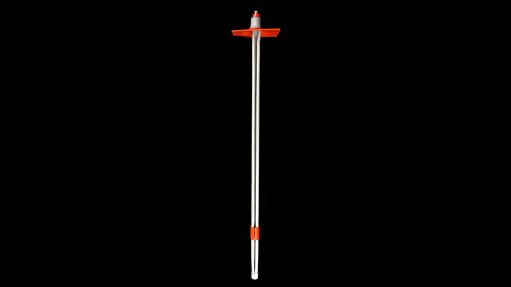
MSP’S ROCBOLT
MSP has signed a 12-month supply contract with Luanshya Copper Mines for its Rocbolt anchoring device
Photo by: Ngage
South Africa-based Mine Support Products (MSP) in July signed a 12-month supply contract with mining companies Zambia Consolidated Copper Mines Investment Holdings (ZCCM-IH) and China Nonferrous Metals Company’s Luanshya Copper Mines for the supply of MSP’s Rocbolt device.
The Rocbolt is a hydraulically set anchoring device with a patented friction ring that enables the device to resist pull-loads of up to 12 t.
MSP GM Conrad Engelbrecht tells Mining Weekly that the company’s full product range is available to Zambian mines.
“MSP products focus on providing support for underground mining operations and Zambia has several underground mines. However, the majority of new mines in the country are opencast,” he says.
MSP has supply contracts with other Zambian mines, including Mopani, which is owned by joint venture (JV) company Carlisa Investments Corporation that comprises mining companies Glencore, First Quantum Minerals and ZCCM-IH; and diversified resources and mining company Vedanta Resources’ Konkola copper mine, bordering the Democratic Republic of Congo.
Engelbrecht tells Mining Weekly that MSP primarily supplies a Rocprop-based solution for deteriorating tunnels, called Rocset, to Zambian mines.
He explains that it is a different application from what the Rocprop was initially designed for, as it is currently used to safeguard areas that need to remain open for a long period instead of being used in tabular orebodies with mining widths of up to 6 m.
“Over a period of time, the quality of tunnels deteriorates and, to mitigate this, one would traditionally use a ring-set. The Rocset, which has the added benefit of being more cost effective and easier to install, is an alternative solution for tunnel deterioration.”
Engelbrecht adds that the Rocset is an ideal solution for the Zambian mining market, as many of the mines are old and have tunnels that have deteriorated significantly.
MSP is also currently in the research and development phase of a new end-anchored bolt, called the Shredder Bolt, which can be used with resin, cement or spinning cement capsules to provide in-stope support.
Engelbrecht notes that research and development on the Shredder Bolt started in September 2013, in response to market requirements and the need for an alternative product to the grout-based bolts currently available. MSP will start marketing the Shredder Bolt in Zambia in the next three months.
He adds that South Africa-based construction and mining technology manufacturer Multi-Construction Chemicals is developing the spinning cement capsule – a cement sleeve that is placed into a hole – for the Shredder Bolt application. The Shredder Bolt is then inserted into the hole at the back of the capsule and spun, shredding cement and an activating agent, which then sets and seals the bolt permanently into the hole.
“The benefit of this solution is that cement is not as sensitive as resin, which needs to be stored under specific conditions to prevent it from hardening prematurely,” he explains.
Market Difficulties
Engelbrecht notes that marketing its products in Zambia, which started 18 months ago, has been a significant challenge for the company, as MSP has no presence in the country.
MSP is a JV between international manufacturing and engineering company DCD and steel product manufacturer and supplier Robor.
Robor has an office in Kitwe, Zambia, and, as MSP needed to establish a presence in the country, it partnered with Robor to benefit from the marketing MSP needed.
“MSP started selling products to Zambian mines in October last year and the volumes are slowly improving. We definitely see Zambia as a potential growth market, owing to the significant growth of mining activity in the Copperbelt,” Engelbrecht concludes.